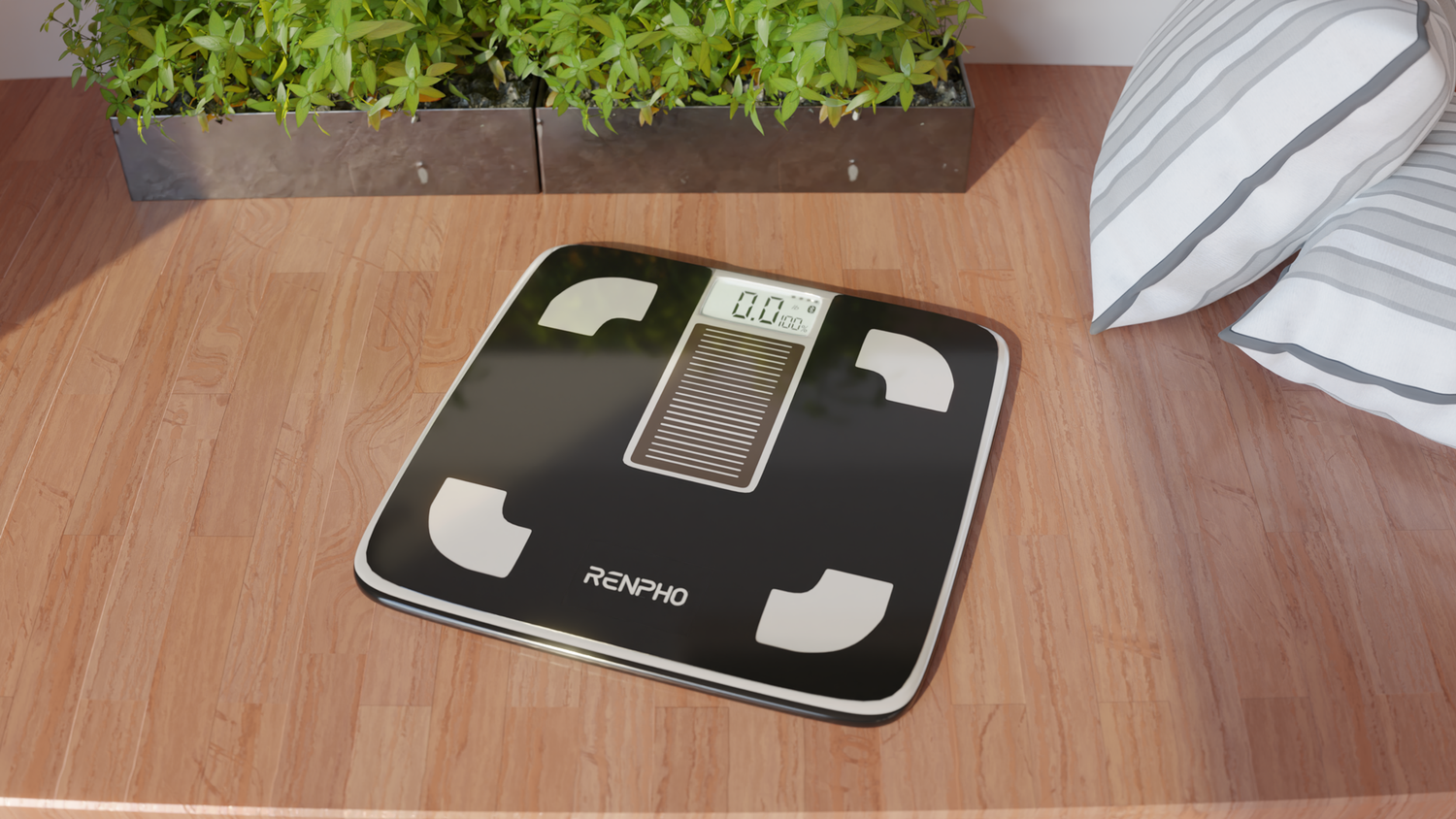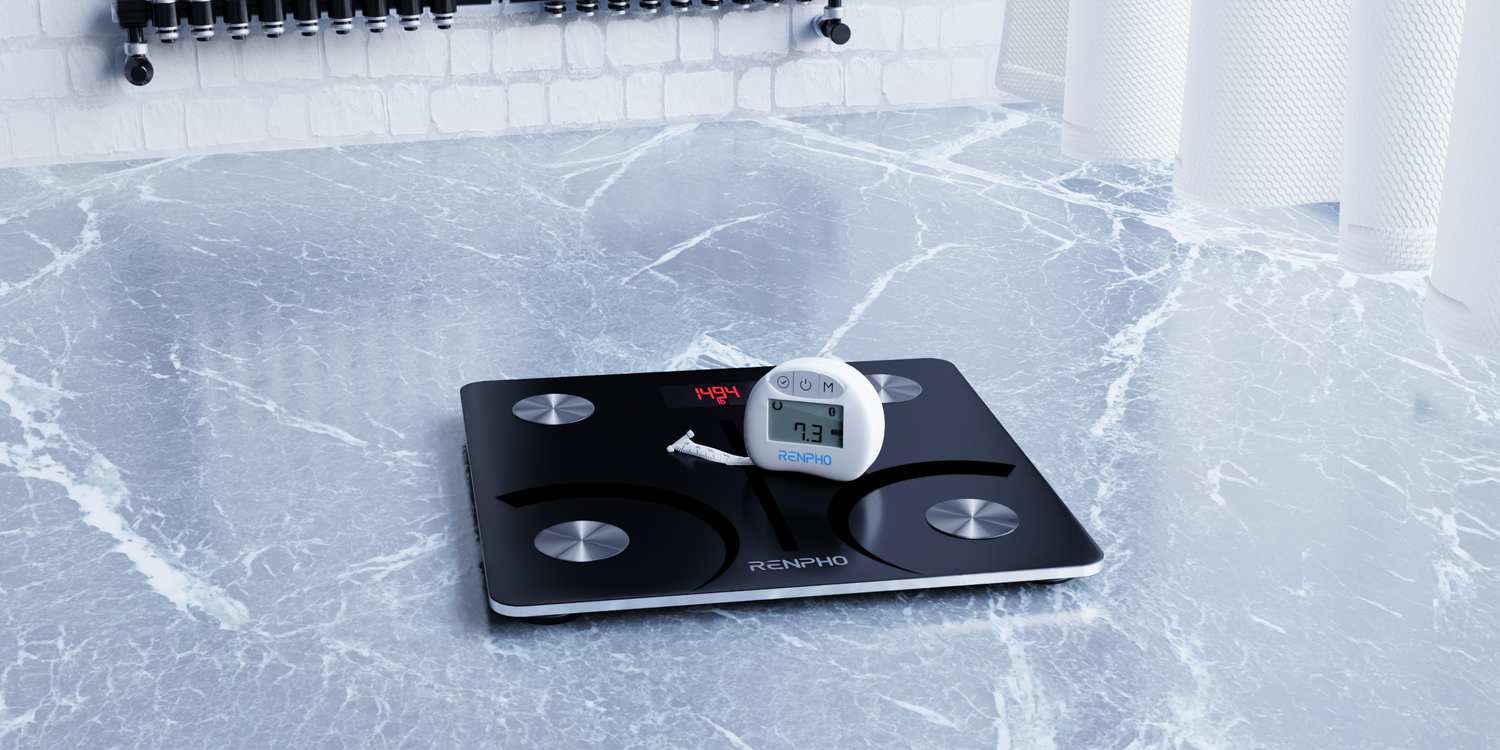When it comes to monitoring and managing weight, bathroom scales play a crucial role. With technological advancements, the market offers a wide range of options, including analog and digital bathroom scales. These two types significantly differ in their design, functionality, and features.
Which one is better, analog or digital? This question has sparked interest and confusion among consumers. Therefore, we will delve into the characteristics of both analog and digital bathroom scales, exploring their pros and cons, to help you make an informed decision on which type may be best suited for your needs and determine whether analog or digital reigns supreme.
Why Track Your Weight Regularly?
Tracking your weight regularly is an important tool for monitoring your progress toward your health and wellness goals. By keeping an eye on your weight, you can assess whether your diet and exercise routines are effectively leading to the desired results. This allows you to make necessary adjustments and fitness changes to ensure you are on the right track.
Moreover, regular weight tracking helps you avoid obsessing over minor fluctuations. Do remember that it's normal for weight to slightly fluctuate daily due to factors like water retention, muscle gain, or the natural ebb and flow of bodily functions. By focusing on the bigger picture and observing long-term trends rather than day-to-day changes, you can prevent unnecessary stress and anxiety about minor fluctuations.
As for your overall health and wellness, regular weight tracking provides numerous benefits. It can motivate and encourage you to stay on track with your healthy lifestyle choices, act as an early warning sign for rapid weight gain and help identify potential health issues before they become more serious. Monitoring your weight enables proactive steps to maintain a healthy body mass index, reducing the risk of chronic diseases such as diabetes, heart disease, and certain types of cancer.
What Are the Types of Scales & What Does Each One Do?

Scales are essential tools that come in various types and designs. Each one serves a specific purpose and is used for different applications. Understanding the different types of scales and what each one does is crucial for selecting the right tool for the job. From kitchen scales that help measure ingredients for cooking to industrial scales used for heavy-duty weighing, each type of scale plays a unique role in ensuring accurate measurements.
No matter what its purpose is, a scale will most likely fall under 2 types: analog and digital scales.
What Are Analog Scales?
Analog scales are traditional weighing devices consisting of several components, including a weighing platform where the object is placed, a pointer moving across a scale to indicate the weight, a beam supporting the weighing platform and pointer, and a counterweight to balance the scale. When an object is placed on the weighing platform, the counterweight is adjusted until the pointer is at zero, indicating that the scale is balanced. As the object's weight pushes down on the platform, the pointer moves to indicate its weight.
There are different versions of analog scales, such as those with a spring mechanism. These scales use a spring to measure the weight of an object by the amount of compression the spring undergoes.
Analog scales are known for their reliability when used correctly, providing a pretty close approximation of an object's weight, suitable for everyday use. However, occasional recalibration may be necessary to ensure accuracy. Overall, analog scales can provide a fairly accurate measurement of an object's weight, making them a dependable option for weighing needs.
What Are Digital Scales?
On the other hand, digital scales are electronic devices used for measuring the weight of objects or substances. They consist of a platform where the object is placed, a digital display indicating the weight, and sensors that measure the weight placed on the platform. The purpose of digital scales is to provide accurate and precise weight measurements for various applications such as cooking, postage, and personal health tracking.
The benefits of digital scales include their ability to provide quick and easy-to-read measurements, high level of accuracy, and the capability to switch between different units of measurement. Digital scales also often come with additional features such as tare function, which allows for the subtraction of the weight of the container, and automatic shut-off to conserve battery life.
In comparison to analog scales, digital scales are known for their higher accuracy and precision. Digital scales provide a more accurate measurement as they are not affected by factors such as parallax error, while analog scales can be prone to reading errors due to the positioning of the needle. Overall, digital scales provide a reliable and precise way to measure weight for various purposes.
Which Bathroom Scale is Better: Digital or Analog?

Digital bathroom scales are known for their accuracy and precision, typically featuring a digital display for easy, at-a-glance readings. Many digital scales also have additional features such as memory for multiple users and the ability to track weight trends over time. Powered by batteries they are generally considered to be reliable and consistent.
Analog bathroom scales, on the other hand, are appreciated for their simplicity and durability. They do not require batteries and can be used anywhere without the need for a power source. Analog scales are also often lauded for their classic design and ease of use, as they do not have any complicated settings or buttons.
In terms of reliability, digital scales are often considered more accurate due to their precision and consistency. However, analog scales are known for their durability and long-term reliability, as they do not have any electronic components that can fail.
When comparing the two, digital scales are generally preferred for their accuracy and additional features, while analog scales are favored for their simplicity and long-term reliability. Ultimately, the better option depends on your preferences and needs.
How Often Should I Replace My Bathroom Scale?
Knowing when to replace a bathroom scale requires considering several key factors. First, evaluating the accuracy of the scale as they may lose their precision, leading to inaccurate readings. It is important to regularly test the scale with known weights to ensure its accuracy. Additionally, keep an eye on the warranty expiration. If the warranty is coming to an end, it may be a good time to consider replacing the scale, especially if it is showing signs of decreased functionality.
While there is no set time frame for replacing bathroom scales, accuracy and functionality should be the primary considerations. If the scale is consistently providing inaccurate readings or is no longer functioning properly, it may be time to invest in a new one. Regular maintenance and testing with known weights can help extend the life of the scale, but eventually, it may need to be replaced to ensure accurate and reliable measurements.
Takeaway
Our weight is important for weight management and psychological assessment. Analog and digital bathroom scales are two common types available, with analog scales being reliable but requiring occasional recalibration, while digital scales offer high accuracy and additional features. Regular weight tracking is crucial for monitoring progress, adjusting, and staying motivated. When deciding to replace a bathroom scale, consider factors such as accuracy, functionality, and warranty expiration. Overall, regardless of the scale type, monitoring weight contributes to overall health and well-being.
Renpho Health Tips
-

5 Tips for a Successful New Year Weight Loss Plan
December 26, 2023
Read more >
-

Wellness and Sustainability: Why a Greener Path Is a Healthy Journey
November 20, 2023
Read more >
-

Weighing In on Smart Scales: Are They Worth It?
October 24, 2023
Read more >
-

Cracking the Code: BMI and Body Fat Percentage
October 10, 2023
Read more >
-

What Your BMI Says About Your Health
October 3, 2023
Read more >



































